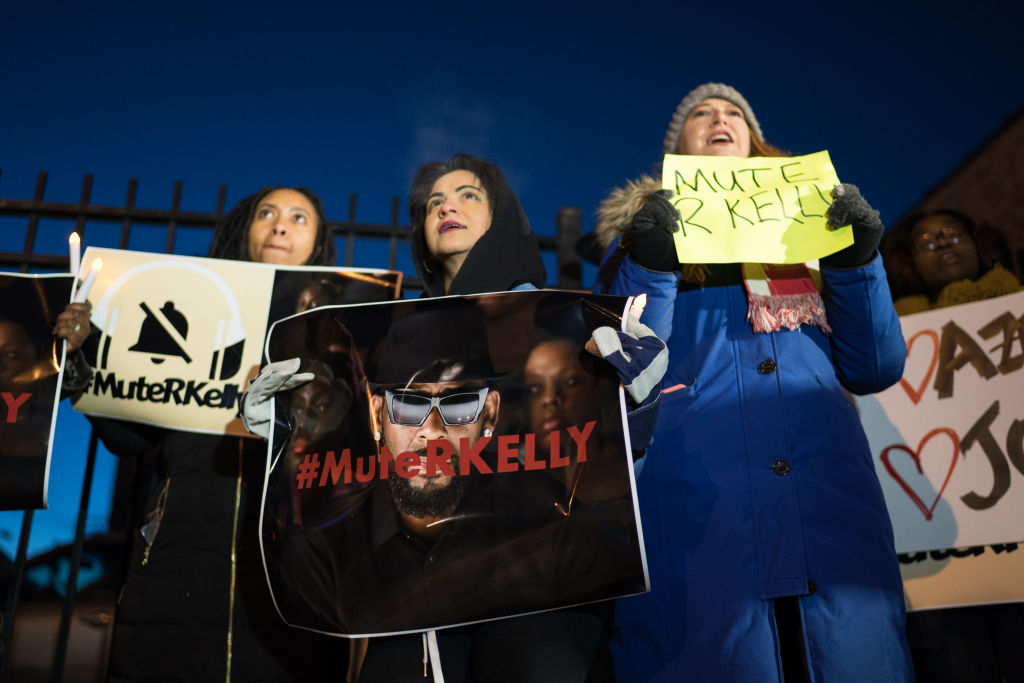
When R. Kelly turned himself in to Chicago police last month after being charged with criminal sexual abuse, my Twitter mentions exploded mostly with celebration. After he thrived professionally for years despite the numerous allegations against him, there was the sense that his accusers might finally see justice. But what does that mean exactly?
As executive producer of Surviving R. Kelly, a documentary series aimed at shedding light on these women’s stories, I’ve spent a lot of time thinking about this question. While it is an unquestionably good thing that R. Kelly may face consequences for what they claim he did to them, my feelings about the situation have been complicated.
R. Kelly, who pleaded not guilty on all counts and was defiant in an interview with Gayle King that aired on CBS March 6, faces up to 70 years behind bars. Many people believe that landing him there was my goal and the goal of the survivors who spoke to me. It was not.
I ended each interview by asking the women what they’d want to say to him should he be watching. Without fail, each of them pleaded with him to “get help,” to “just stop” hurting girls and women like them. Not one made it through our interview without being upended by her trauma and pain. Several needed breaks to regain their composure. It was wrenching. Yet when they considered what justice might be for an accused serial predator, they never used the words jail or prison. They wished for him a healing, that he face and own the harm he’s caused. When they talked of his needing help, I understood them to mean some combination of professional therapy and spiritual healing. In postproduction, I scoured the footage for some departure, but no, each of them had given this answer.
I wasn’t entirely surprised. As black women we understand that our criminal-justice system is not just a broken one that denies black people justice, but an extension of slavery, built to warehouse black people. Historically, we’ve talked only about this system harming black men, denying all the ways that black women are targeted from girlhood. And though black feminists have tried to disrupt this self–subjugating, we still think of issues like police violence, issues that affect all black people, as affecting only “our black men.” This is our default, and it is this deep hardwiring that informs these women’s compassion for R. Kelly.
But the women I interviewed were also articulating a principle that many of us who’ve been working to dismantle the prison–industrial complex often call for: a restorative justice process. This requires that at the very least the harm caused be acknowledged, and I don’t believe prisons are a place where such rehabilitation can happen. I struggle to call myself an abolitionist, but I am always contending with the tension in seeking protection from a system that continues to do the black community so much harm. And yet I also understand why so many people who support R. Kelly’s accusers think his being back in that same system may somehow mean justice is coming.
When I began this project, I hoped R. Kelly would experience a social death. I wanted Surviving R. Kelly to do to his catalog and tours what Blackfish did to SeaWorld. I wanted to remind his fans that the not-guilty verdict in his 2008 child–pornography case does not mean he is innocent. I still want that, but not only that.
I believe the women I interviewed for Surviving R. Kelly, and I want R. Kelly to reckon with their claims. Instead, during his interview with King, in which he loomed over her and erupted with rage, he cast himself as the victim, avoided her straightforward question about sex with underage girls and said the parents begging for contact with their young daughters who live with him are to blame.
Given his continued denial, deflection and histrionics, it’s clear he’s no candidate for restorative justice. Perhaps jail is the only place for him. The system so often fails victims of sexual violence. I’m hoping this time it doesn’t.
More Must-Reads from TIME
- Why Trump’s Message Worked on Latino Men
- What Trump’s Win Could Mean for Housing
- The 100 Must-Read Books of 2024
- Sleep Doctors Share the 1 Tip That’s Changed Their Lives
- Column: Let’s Bring Back Romance
- What It’s Like to Have Long COVID As a Kid
- FX’s Say Nothing Is the Must-Watch Political Thriller of 2024
- Merle Bombardieri Is Helping People Make the Baby Decision
Contact us at letters@time.com